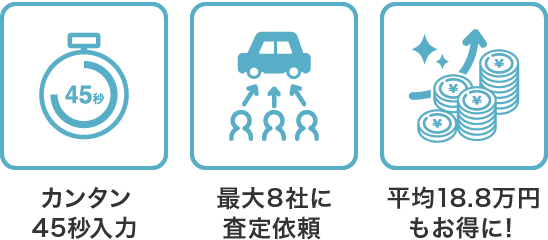いくつか取り上げてみたいと思います。
La Corée du Sud bloque l’entrée de trois diplomates japonais sur son territoire
Les relations entre la Corée du Sud et le Japon connaissent un nouveau regain de tension. Trois députés ultraconservateurs japonais se sont vus interdire ce matin du 1er août 2011 l’accès au territoire sud-coréen. Ils sont depuis bloqués à l’aéroport de Gimpo qui dessert Séoul, et refusent de repartir à Tokyo.Ils voulaient se rendre à proximité de l’île sud-coréenne de Dokdo, afin d’y affirmer qu’elle appartient au Japon.
Avec notre correspondant à Séoul, Frédéric Ojardias
« Je vais montrer à ces descendants de criminels de guerre qu’ils ne peuvent pas poser le pied sur notre terre, a écrit un ministre sud-coréen sur son compte Twitter, quelques heures avant l’arrivée des trois parlementaires japonais à l’aéroport international de Gimpo qui dessert Séoul.
Ces propos, peu diplomatiques, illustrent bien la colère des Sud-Coréens concernant la visite indésirable de ces trois politiciens conservateurs japonais, une visite considérée comme une véritable provocation. En Corée, les blessures ouvertes par la très brutale période de colonisation japonaise, de 1910 à 1945 sont toujours très vives.
L’île de Dokdo, sous souveraineté coréenne mais revendiquée par le Japon, cristallise ces tensions. Le récent survol de l’île par un Airbus A380 de la compagnie Korean Air a exacerbé le conflit : Tokyo avait appelé ses fonctionnaires à boycotter la compagnie aérienne coréenne.
RFIより
訳すにはちと長いので要点をまとめます。
大韓民国、日本外交官(筆者注:本来ならDeputeのところをDiplomateになっておりますので訳に忠実である様外交官と言う言葉を使いました)3名の入国を拒否する
2011年8月1日の朝未明、超保守派(筆者注:Ultra Conservateurはかなり極右に近いと言う意味合いになります)国会議員3名の入国を拒否した。
この3名は韓国領独島に近い島に赴き日本領である事を主張するために行こうとした。
ある韓国の大臣はTwitterで「戦争犯罪者の子供らに我々の土地を踏みにじらせる訳にはいけない」と書いていた
独島は韓国領であるが、日本が主張し緊張を高めている
<訳ここまで>
RFIはRadio France Internationalの略で海外向け国際放送です。
現時点でフランスのメディアで取り上げているのはここだけですが新たな情報が入り次第、記述します。
簡単に言うと、RFIは韓国の報道を鵜呑みにし、世界に発信しようとしています。
ちなみにFinancial timesはというと
S Korea denies entry to Japan politicians
South Korea has prevented three conservative Japanese politicians from entering the country in an escalating diplomatic spat over disputed islands.
Lee Myung-bak, South Korea’s president, who has forged warm ties with Japan to preserve a common front against North Korea, has taken an unusually muscular approach to the visit because the islands, known as Dokdo to Koreans and Takeshima to the Japanese, fire intense political passions at home.
South Korea denied entry to the Japanese opposition Liberal Democratic party members at Gimpo airport on Monday. The lawmakers refused to return to Japan for about nine hours before agreeing to board a flight home.
The parliamentarians say they want to investigate Korean sentiment towards Japan’s claim to the islands. While Korean police control them, Japanese school textbooks still mark the rocks as Japanese.
“I cannot accept South Korea’s legally groundless treatment of a foreign country’s representatives,” said Yoshitaka Shindo, one of the politicians who was refused entry into South Korea.
Yukio Edano, Japan’s chief cabinet secretary, called on Seoul to respect the rights of Japanese passport holders.
As the politicians landed, protesters were waiting outside the arrivals hall with placards asserting South Korea’s claim to the islands and bags of curry paste to hurl at the Japanese.
Many Koreans suffered terribly under Japanese occupation, which ended in 1945, and Tokyo’s claim on the islands reawakens bitter memories of colonial rule.
The latest round of tensions began in July when Korean Air performed a test flight of a new Airbus A380 over the islets. Tokyo’s foreign ministry responded by banning its diplomats from travelling on South Korea’s national carrier.
South Korea’s government, which approved the Korean Air flight, has used the dispute to build political capital before next year’s presidential election.
Mr Lee’s aides say he personally took the decision to block the Japanese parliamentarians, arguing that South Korea would not be able to vouch for their safety given the depth of public anger.
South Korean officials are also irritated that the trip follows Seoul’s aid to Japan after March’s earthquake and tsunami, which they saw as a turning point in relations with the former colonial overlord.
Korean newspapers across the political spectrum said Seoul should have ignored the lawmakers to deprive them of publicity. However, in an act of political theatre, one of Mr Lee’s closest aides has headed to the island of Ulleungdo, which neighbours Dokdo, saying he would be on “guard duty”.
While the visit leads news in South Korea, the lawmakers – who are virtual unknowns in Japan – are receiving scant attention there. Japan’s Liberal Democratic party has also distanced itself from the trip, labelling it a private initiative.
“Nobody is paying any attention to them,” said Masao Okonogi, an expert in Korean politics at Keio University, adding that he expected Seoul and Tokyo to cool the controversy soon.
While politicians see the islets as a vote-winning battleground, Tokyo and Seoul have not allowed previous spats to derail their huge economic interdependence. Japan is the main supplier of engineering parts for South Korea’s large manufacturers and Seoul last year ran a $36bn trade deficit with Tokyo.
Financial Timesより
Financial Timesもかなり韓国よりの発言をしています。特に
> Many Koreans suffered terribly under Japanese occupation, which ended in 1945, and Tokyo’s claim on the islands reawakens bitter memories of colonial rule.
多数の朝鮮人は日本統治中に非常に辛い統治を受け、未だにその傷跡が残っている
ほかのメディアでは
CNN
South Korea blocks Japanese politicians from entering airport
AFP
S. Korea bans Japanese lawmakers in islands row
とまぁ世界のメディアでは取り上げられておりますが、ざっと目を通してみても
独島、東海、極右議員
というのが出てきます。
当然ながら由々しき問題ではありますが、強いて言えば、
世界中に竹島は紛争地域である
と言う事を知らしめた事ではないでしょうか。
何度でも申し上げますが
東海ではなく日本海であり、独島ではなく竹島である
これが不変の事実ですが、今の民主党政権では世界中に
日本が不当な主張をしている
というイメージが与えられるのみです。このイメージを払拭するには韓国のプロパガンダを払拭する事です。
方や世界中にプロパガンダで汚染し、もう片方では日本国内で韓流をあおる。
そんな韓国と日本
友好等あり得ますか?
 日韓問題 - フランスにおける報道
日韓問題 - フランスにおける報道




